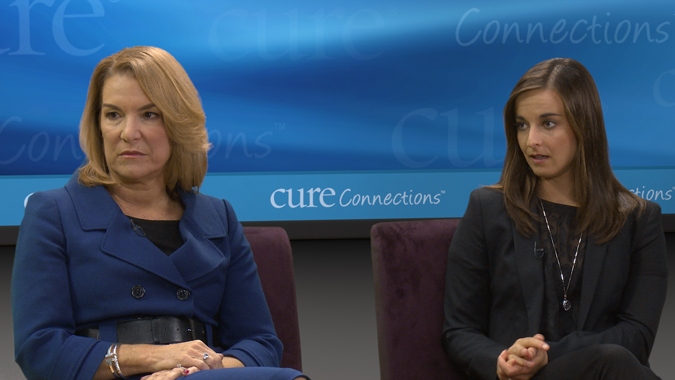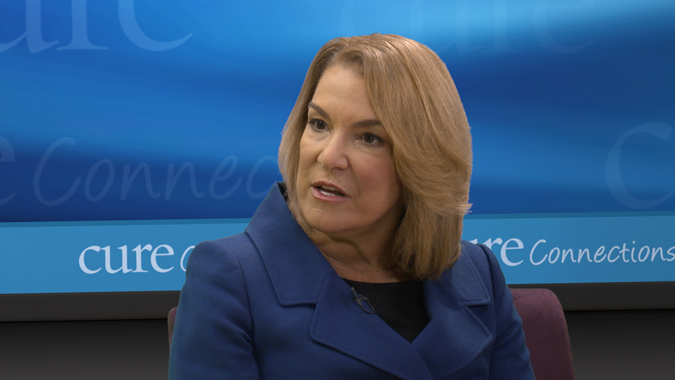
Breast Cancer
Latest News

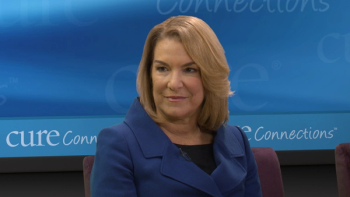

Cancer is an emotional challenge all by itself. Curiously enough, a cancer diagnosis gave me a new lease on my emotional life. But sometimes a person with the best of intentions will falter. Knowing when to seek help can save a life.

An easy-to-use list to stay calm when the cancer panic hits.

CURE Connections is debuting a video series exploring breast cancer patient treatment experiences in recognition of October as Breast Cancer Awareness Month. The new series includes a deeply personal story from a patient who took action after testing positive for a genetic mutation that put her at a dramatically increased risk for developing breast cancer.

BRCA mutations can lead to prostate and other cancers, and men are as likely as women to inherit them. Yet male awareness is lagging.
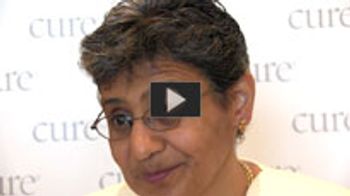
Anees B. Chagpar, director of the Breast Center at Smilow Cancer Hospital at Yale-New Haven, discusses what a patient can expect following a contralateral prophylactic mastectomy.
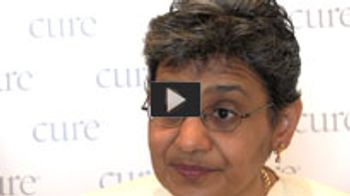
Anees B. Chagpar, director of the Breast Center at Smilow Cancer Hospital at Yale-New Haven, provides an overview of contralateral prophylactic mastectomy.

Two-time cancer survivor struggles living with chemo brain.

In many cases, losing your hair is part of cancer treatment and it can be very emotional. For me, it symbolized so much more than just a physical change.

There are many clinical trial opportunities, Tolaney says, before surgery.

The study was a secondary analysis of the PREDIMED trial, which involved 4,282 women in Spain aged 60 to 80 and at high risk of cardiovascular disease.

Electroacupuncture produced larger placebo and smaller nocebo effects than did gabapentin for treating hot flashes among breast cancer survivors.

Finn says it's important for advocacy organizations to attend and socialize at these conferences to explore possible collaborations.

I wish my doctors knew more about the emotional aspects of cancer and were given more time with me.

Which life is worth saving? More and more it depends on the cost of the drug used to treat your cancer.

A male breast cancer survivor's menu for mending.

Listening to music before undergoing ambulatory surgery for the diagnosis or treatment of breast cancer lessens patients' anxiety levels.

Ten years after founding The Julie Fund for Women's Cancers, President Peter McAvinn's resolve is stronger than ever.

A survivor "pays it forward" by stressing the importance of knowing your risks.

Michelle Esser, program manager for research and advocacy, Young Survival Coalition, discusses two encouraging studies presented during the 2015 annual meeting of the American Society of Clinical Oncology (ASCO).

Sleep disorders are finally getting the attention they deserve.

I led a fairly charmed life up until about the age of 29. Life just always seemed to work out for me. I was the gal who had a flat tire 100 yards from the tire shop.

We are learning how to respond to the growing population of long-term care needs of survivors. Here in the wealthiest country in the world, we have the responsibility to not only lead other countries by example. Yoga teachers around the world are responding to the needs and demands of their country's survivors.
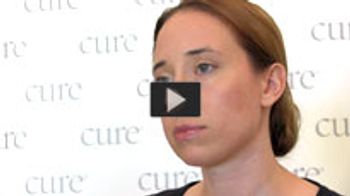
Breast surgeon Jessica Ryan discusses recovery from an extreme oncoplasty.
